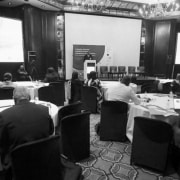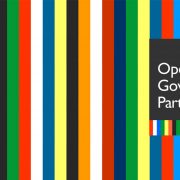|
Getting your Trinity Audio player ready...
|
By Kersty McCourt
First published on Open Government Partnership
Robust and vibrant civil societies play a critical role in contributing to development. Civil society helps shape policies, advocate for the needs and demands of citizens, provide essential services, protect human rights, and strengthen public participation in democracy.
Yet, over the past decade, there has been insufficient attention to ensure that a strong and vibrant civil society flourishes and by contrast many governments have, explicitly or inadvertently, made attempts to restrict and harm civic space.
This hesitancy to strengthen and embrace civil society is reflected in Open Government Partnership (OGP) action plans. Only 122 of a total of 4 900 commitments since 2011 have focused on civic space, and only eight out of 77 national OGP members are currently implementing a commitment on this theme.
To explore this gap and spotlight civic space, OGP brought together the Democratic Freedoms Learning Network, which aims to unpack civic space challenges, understand progress, and learn from experiences across different regions.
The first meeting took place on 12 September 2022 and focused broadly on the enabling environment for civil society – namely the legal environment, administrative measures, and funding modalities. Here are five broad takeaways from the discussion, which will guide the work of the Democratic Freedoms and Learning Network over the coming months:
- Build trust and dialogue between government and civil society to create a basis for an enabling environment for civil society organisations (CSOs). Examples include formal platforms designed as a space for exchange and input to more informal spaces facilitated by NGOs.
- Create a clearly articulated strategy to promote and protect civil society. A strategy can help garner political buy-in and facilitate the integration of civil society into all relevant policy areas. Currently nearly 70% of OECD countries have a strategy on civil society as outlined in the OECD’s forthcoming inaugural report on civic space.
- Ensure equity between business and civil society recognising the needs of CSOs. The European Union’s current initiative to adopt minimum standards for the governance of NGOs builds on long-standing rules for businesses and in North Macedonia, a new Central Register for NGOs is being tailored to the needs of civil society.
- Adopt a long-term approach to focus on both the design and implementation of the strategies, rules, and policies. Tools such as the National Enabling Environment Assessment carried out in the Philippines and the OECD’s civic space scans can help alongside plans that promote implementation at an early stage.
- Develop a holistic view of civil society to promote a trusted and vibrant space. Understanding the diverse and complementary roles of civil society and their varied contributions to public and economic life is key. For example, in most countries, civil society comprises around 5-10% of the total workforce.
Over the coming months, the Democratic Freedoms Learning Network will draw on these building blocks to explore different subthemes and work with countries to exchange experiences and support new initiatives that promote civic space.








